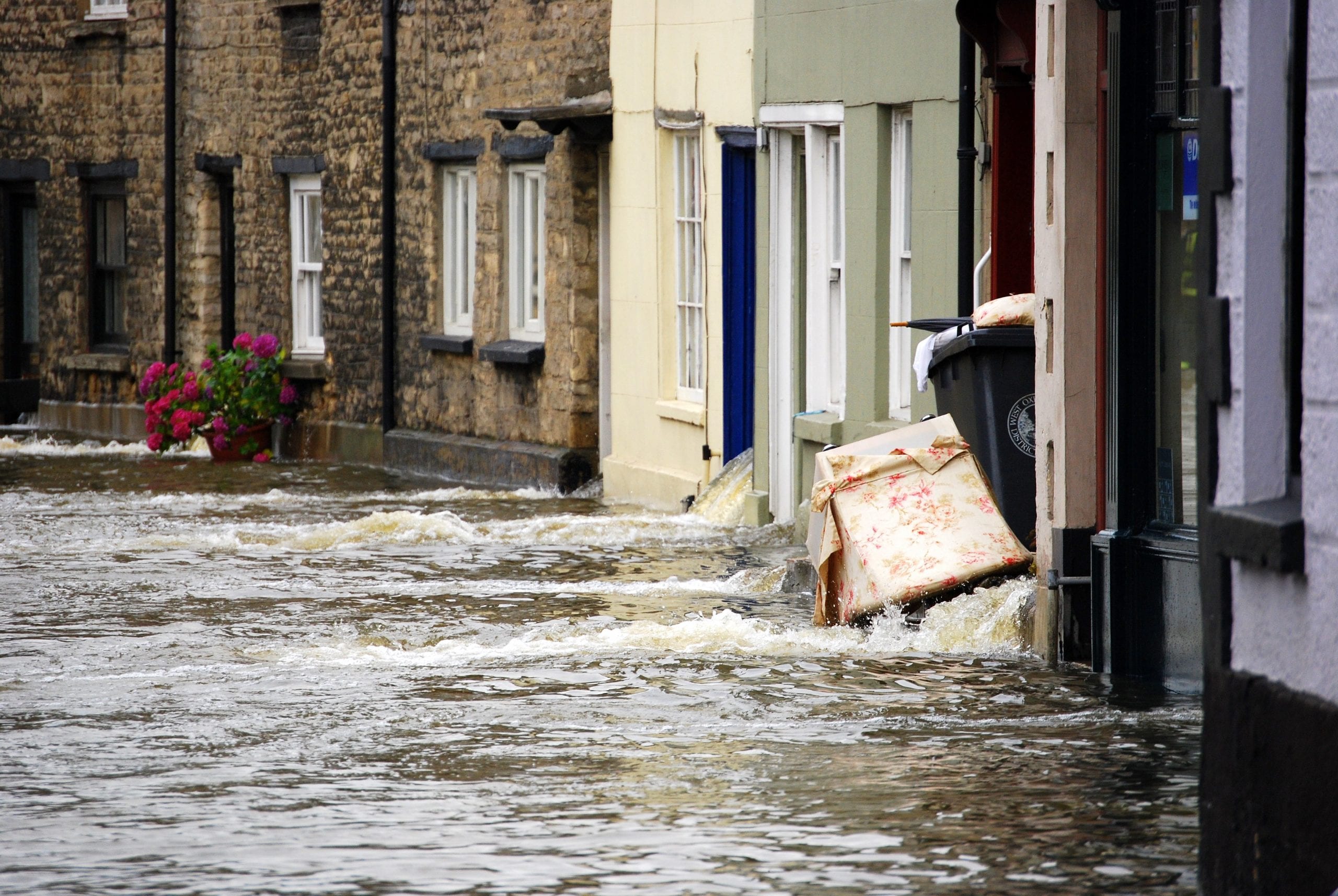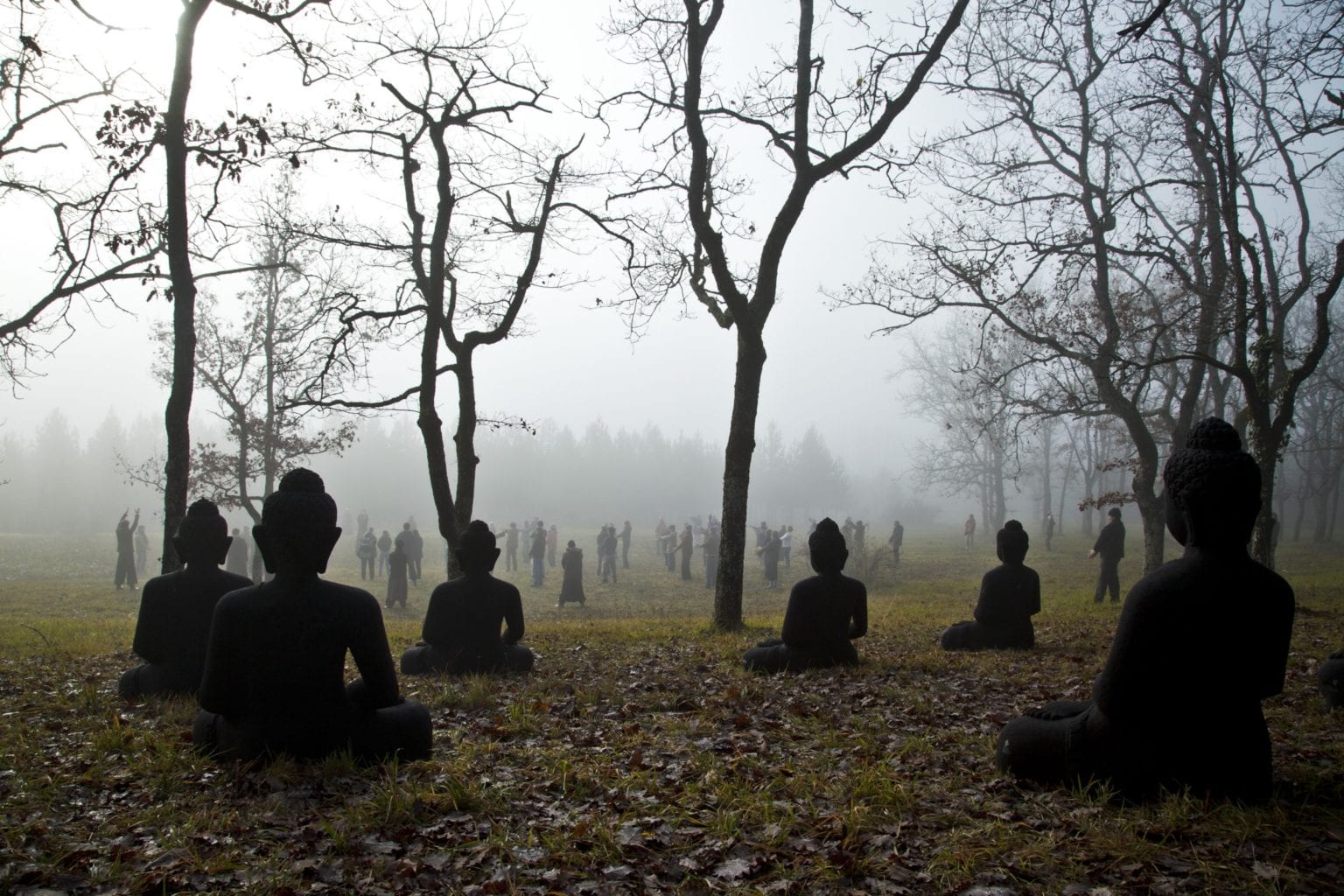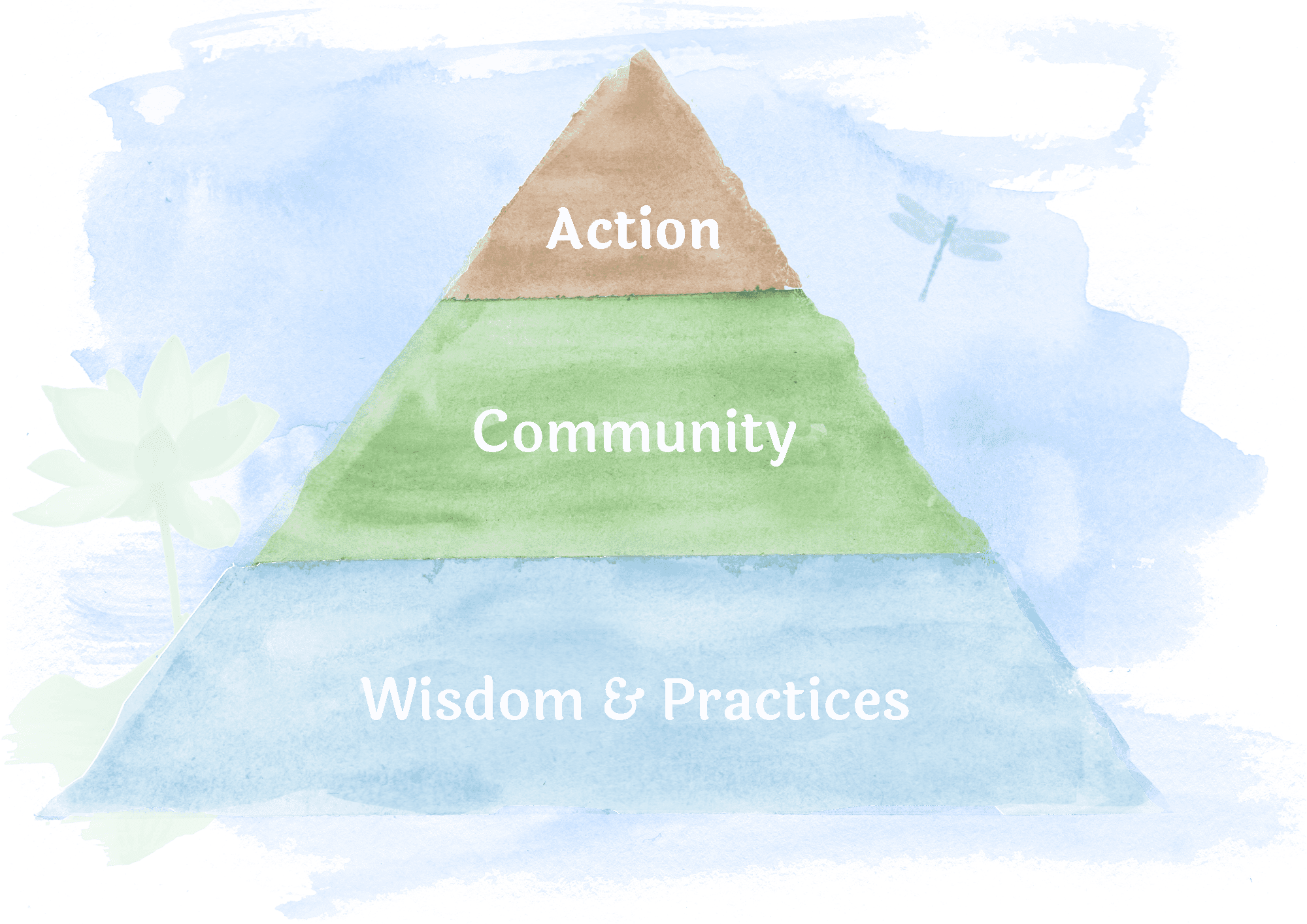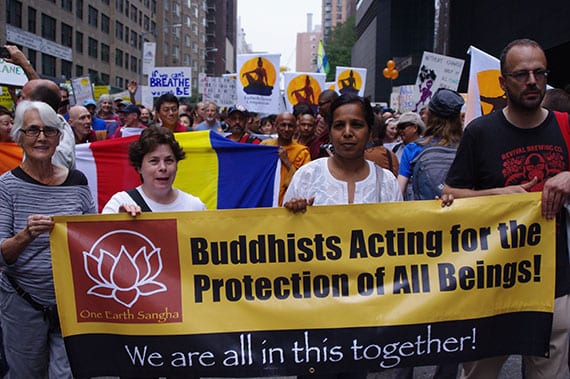
Context
Our Collective Situation
While insecurity is inherent in being alive, life on Earth is pervasively more and more vulnerable. The biosphere’s ability to support all forms of life, including human society, is increasingly uncertain. While impacts and timelines vary consistent with existing patterns of oppression, none will ultimately escape the pervasive loss of ecological health currently underway. Average global temperatures, ocean acidification, and sea levels all rise while dramatic fires and storms punctuate Earth’s changing atmosphere. At the ground level, fresh water and fertile topsoil are in decline around the world. Meanwhile, the loss of life other-than-human, the creatures and rooted ones crafted by nature over millennia, goes on in the background in numbers and consequence largely unknown.
Habitual Responses
As human beings enmeshed in the living Earth community, many have lived with the awareness of these losses for generations, sensitized by their cultural inheritance or location. Many others are just now awakening to the massive changes underway.
When faced with this disruption and the potential for staggering losses ahead, our minds easily become disoriented and confused and our hearts mired in fear, grief, anger, and guilt. This is suffering.
The Dharma teaches we will habitually respond with a myriad of strategies to avoid this raw and deep uncertainty. In a scramble for safety, we might deny the reality that humans are undermining Earth’s systems or disavow our own part in that truth. Instead, we might construct an enemy who is to blame, others or even ourselves, lecturing or terrorizing in order to coerce action. Conversely, some see the problem as merely technical, promoting solutions that will “fix” everything. These strategies seek to dissipate our distress yet none will in this way succeed. In terms of impact on the situation itself, most will backfire.

The founding premise of One Earth Sangha is that the Buddhist tradition offers significant, largely untapped resources that can support us in bringing wisdom, compassion, courage, creativity, flexibility, and a steady resolve to our inter-related ecological and social crises. The Dharma’s transformative insights help us understand the root causes of our challenge, how we can remain steady as it unfolds, and how we might skillfully respond.
Our Mission
The mission of One Earth Sangha is to support humanity in a transformative response to ecological crises based on the insights and practices of the Buddhist tradition. Through our Virtual EcoDharma Network, we are here to inspire, inform, and guide our members in actions that will end ecological violence. This is our contribution to Wise Action.
We assert that engagement is, on the one hand, essential to the spiritual path and, on the other hand, more effective and sustainable when grounded in transformative insight and authentic compassion.
We also aspire to skillfully challenge contemporary convert-Dharma culture and practices. We suggest that because the predominant Dharma traditions in the West are embedded in consumerist, militarist, hyperindividualist, white supremacist, and species-ist culture, they will have a tendency to replicate and empower these cultural patterns. Yet the Dharma itself teaches self-scrutiny. As practitioners, we can welcome challenges to what we take to be reality, to what we view as “the way things are.” This endless Dharma never lets us off the hook and yet always offers a way forward.
The EcoDharma we aspire to develop and share is rich and multifaceted. Briefly stated, it is thoroughly rooted in Dharma, wholly inclusive of Earth and other than human beings, applies to the individual as well as collective level, counters patterns of domination across differences and over time, and emphasizes practice that is engaged and relational.
A monk once asked the Zen master Yun Men, “What is the work of the Buddha’s whole life?” Yun Men replied, “An appropriate response.”2This koan is from The Blue Cliff Record, case fourteen; translators Thomas Cleary and J. C. Cleary. Note that while Cleary & Cleary translate the last line as “an appropriate statement,” we’re using the common variant “an appropriate response,” which is well-suited to our context yet not as implicitly deep.
Strategy
Our approach to “appropriate response” rests on a foundation of wisdom teachings and practices from the Buddhist tradition. We then support the development of communities that can gather and experience our offerings, providing mutual support and sharing their own wisdom. Arising from wisdom and embodied by community, we encourage diverse forms of engagement.
The diagram below illustrates both the structure and proportion of these investments.

Wisdom & Practices
As a Virtual EcoDharma Center, our principle offering is the wisdom teachings and practices that support ecological well-being. Guided by a teaching council representing several Buddhist traditions, we offer core programs such as the EcoSattva Training as well as EcoDharma articles curated from around the web by our editorial team.
Our offerings regularly integrate an understanding of how other social movements, including those demanding racial and economic justice inform, support and complement ecological concerns. Through a steady flow of insights, reflections, practices and fresh perspectives, we support our membership in developing a courageous, durable, and compassionate response to these interlocking challenges.
Community
At the center of our strategy is spiritual community or “Sangha.” As our name, One Earth Sangha, indicates, we believe community is critical to the Path of Engaged Practice. Many of our members say that the value of One Earth Sangha is in the sense of being together that we facilitate.
Local groups, or “EcoSanghas,” gather in-person or online and often include members from multiple Buddhist traditions or no tradition at all. These groups explore teachings, practice together and, in some cases, organize engagement activities. Many EcoSanghas have emerged organically around our online programs. We support these groups by helping them find and connect with one another.
Our community space includes curated EcoDharma events from our partners where you might meet and gather with others. We also share statements from Buddhist leaders and practitioners that advocate to the wider world the case for active response from our traditions’ perspectives.
Action
While we view engagement as an essential component of spiritual practice, One Earth Sangha does not organize action campaigns. Rather, we collaborate with our membership and partners to bring capacity, insights, and skillful means to campaigns organized by others. Moreover, our members are encouraged to identify and explore a diverse array of actions that are authentically responsive to their situation. Our members interrupt ecological destruction, advocate for environmental justice, develop healthy and sustainable solutions, and support the ongoing transformation of the human/ earth relationship.
At the same time, we recognize that in this regard some members are not sure where to start. We therefore identify and promote specific campaigns from our secular and interfaith partnerships that fit our values. Finally, for mass mobilizations, we act as an organizing point to bring the Buddhist/mindfulness communities and perspectives to broader interfaith initiatives.
One Earth Sangha is one of the platforms you really need to be hooked into as part of your vital support for living the Dharma within our planetary emergency. You will find many important resources, updates, and a lovely community there. Its work and contribution are peerless.
Thanissara (Buddhist teacher, author, and activist)
History
Since our founding in 2013 as an engaged project with the Insight Meditation Community of Washington, One Earth Sangha has been a leader in cultivating a Buddhist response to ecological crises, providing a hub for teachings, connection, and engagement opportunities.

Early in its formation, our co-founders were invited to collaborate with Natural Dharma Fellowship in the breakout “EcoDharma Conference” at Wonderwell Mountain Refuge in the summer of 2014. Our “Mindfulness and Climate Action” series mentioned above catalyzed discussions that led to the formation of the Buddhist Climate Action Network. As a founding member of the Global Buddhist Climate Change Collective, we assisted with and promoted the delivery of the Buddhist Declaration on Climate Change, presented to the UN Climate Negotiators at COP21 in Paris on November 28, 2015.
We provide support for the development of tradition-specific responses such as the Earth Holders Sangha which is emerging out of the Thích Nhất Hạnh / Zen tradition. Finally, we collaborate with leading interfaith groups such as GreenFaith and Interfaith Power & Light for mass mobilizations, local campaigns, and other multi-faith initiatives. You can learn more about our partnerships here.
Infrastructure
As a Virtual EcoDharma Center that promotes and supports local practice, local Sanghas, and local engagement, we strive to model sustainability in our operations. Still, our digital platform contributes to the carbon footprint of our hosting data centers.
In 2015, we migrated our website operations away from a hosting service that used carbon offsets to compensate for relatively dirty energy sources. Thanks to our amazing volunteer tech staff, we are now self-hosted on Google Cloud services, ranked highest among all cloud computing services by GreenPeace’s Clicking Green report. Google data centers have run on 100% renewable sources since 2017.

A Place to Practice
What does it mean to live in accordance with Buddhist principles in the context of global climate change? What would our lives look like if we were to respond to the environmental crisis as an expression of our Buddhist path? How can Buddhism, with its understanding of greed, hatred and delusion, as well as its deep exploration of our connectedness and inter-being, contribute to a conversation about broad-scale transformation? How do we actualize our aspirations, even the EcoSattva Vows, and help ourselves and others fully awaken to the truth of a warming world?
One Earth Sangha offers a place to live our way into the answers to these and other questions. As the founders and staff of One Earth Sangha, we feel privileged and honored to hold this space. We invite you to join us on the path of engaged practice.
